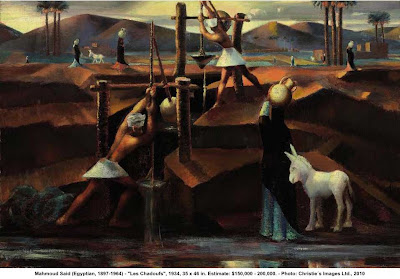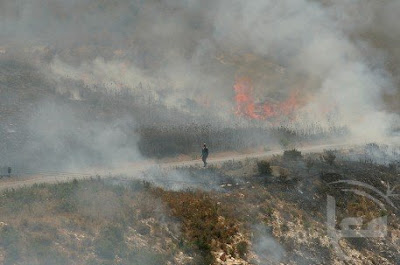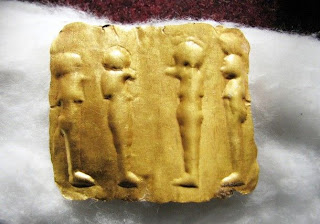Mahmoud Said, Les Chadoufs.
A work by the Egyptian painter Mahmoud Said has been sold for $2.4m at an auction in Dubai - a record price for an artist from the Middle East. The painting, called Les Chadoufs, shows Egyptian peasants drawing water from the Nile. Christie's, the auctioneers, had originally estimated the painting's value at up to $200,000.The record-breaking painting was one of 25 being sold by Mohammed Said Farsi, a former mayor of the Saudi port town of Jeddah. Altogether, Mr Farsi's paintings fetched $8.7m (£5.7m). Another artwork by Mr Said went on sale at the auction on Tuesday night, reaching $900,000.Most of the buyers were from the Middle East, Christie's said, but others came from the US, Europe and Asia.
Mahmoud Said is considered to be the creator of the modern Egyptian school of painting. He lived 1897-1964. Les Chadoufs was painted in 1934 and is considered his masterpiece.
Below two other works by him, auctioned by Christie's in 2008 for much lower prices On top: View of Sirros, below: The Lighthouse of El-Maks:
-


.jpg)







 n
n
 S
S


















